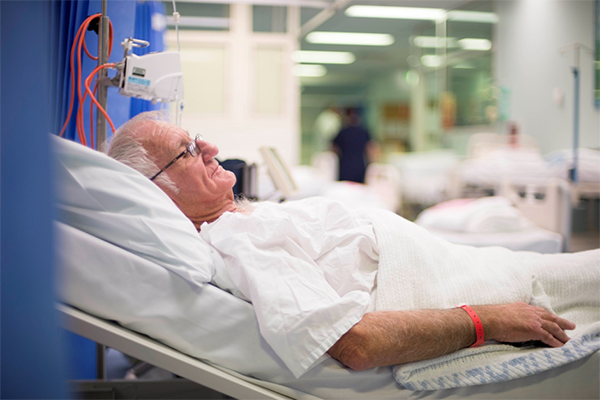Infection Control
Infection Control means preventing or limiting the spread of infection both in the hospital and in our community. Some treatments may increase the risk of infection. For example, surgery or taking certain medications may weaken your immune system.
For factsheets click here.
WHAT PATIENTS CAN DO
1. SPEAK UP- IT’S OK TO ASK!
Talk to your doctors about any questions or worries you have. Ask what they are doing to protect you.
- If you have a catheter, ask each day if it is necessary
- Ask your doctor how he/she prevents surgical site infections. Also ask how you can prepare for surgery to reduce your infection risk.
- From time to time our staff can become very busy, and you may wonder if your doctor, nurse or other healthcare worker cleaned their hands before and after touching you. Staff should always perform hand hygiene in front of you. If you did not see them and are worried please feel free to remind them.
As part of your role in the fight against infection, we hope you will remember that “it’s OK to ask”.
2. KEEP HANDS CLEAN
Help us beat Infections:
- Don’t visit anyone if you are sick
- Clean your hands every time you enter and leave the ward- wash with soap and water or use the alcohol hand sanitiser that is found in all rooms.
- Cough into a tissue or your elbow then clean your hands
- Do not touch any patient dressings, tubes, or IV drips
From time to time our staff can become very busy, and you may wonder if your doctor, nurse or other healthcare worker cleaned their hands before and after touching you. Staff should always perform hand hygiene in front of you. If you did not see them and are worried please feel free to remind them.
3. WHAT ARE ISOLATION PRECAUTIONS?

Isolation precautions refer to special safety measures that are put into place to lessen the spread of germs. Reasons a patient may be placed in isolation:
- The doctors suspect or know that a patient has an infection that can be spread to others in the hospital
- A patient may have certain types of germs that are resistant to antibiotic on or in their body, even if they are not making him/her ill
We do this because it is very easy for some patients to catch these germs. For these patients, even germs that don’t usually make people sick can cause bad infections.
4. KNOW THE SIGNS AND SYMPTOMS OF INFECTION
Some skin infections such as MRSA appears as redness, pain, or drainage at an IV catheter site or surgery site. Often these symptoms come with a fever. Tell your doctor/nurse if you have these symptoms.
5. WATCH OUT FOR DIARRHOEA
Tell your doctor or nurse if you experience diarrhoea three or more times in 24 hours, especially if you have been taking an antibiotic.
6. PROTECT YOURSELF
Get vaccinated against flu and other infections to avoid complications. Vaccines protect others around you as well.
We care about what matters to you
Please tell us what type of Infection Control information you would like to see on our website by emailing us at SESLHD-STGInfectionControl@health.nsw.gov.au